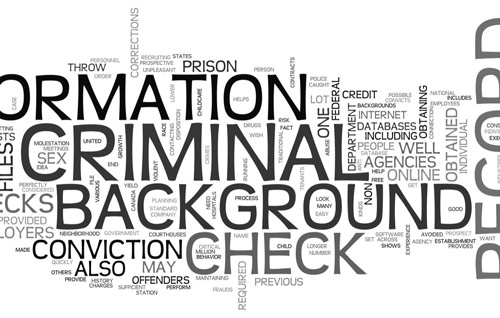 Upcoming Events Upcoming Events
|

Trace Investigations will be exhibiting at two important conferences in Indianapolis in August. On August 3 and 4 we will be attending the annual seminar of the Indiana Worker's Compensation Institute. Investigators Don C. Johnson and Becca Gieselman will be meeting insurance claims representatives from three states at this popular gathering of insurance services professionals. Later in August, we will be exhibiting at the annual conference of the Indiana State Council of the Society for Human Resource Management. Held each year at the Convention Center in Indianapolis, over 1,300 SHRM professionals are scheduled for this year's event, featuring guest speaker Peyton Manning. Trace's managing partner Christine Koryta and CEO Don C. Johnson will be hosting our exhibit booth on August 28-30.
 |
"If the words don't add up, it's usually because the truth wasn't included in the equasion."
|
|
 |
|
We are grateful to have the opportunity to provide you this valuable information. We take special care to ensure the information we provide you in "Tracings" is the latest and most current information available
.
In this edition, we address how due diligence makes a difference in background investigations and how bad data mean bad decisions when hiring.
The goal of this e-newsletter is to provide you with critical information that will help you prevail in your business affairs wherever fact finding is an essential component. We will share what we have learned in our 30+ years as professional investigators and intelligence analysts.
We want to write about topics that will assist you in succeeding in your business endeavors. Please e-mail us your topics of interest to
[email protected].
We encourage you to share our e-newsletter with others in your sphere of influence.
Sincerely,
The Trace Team
|
 Strictly, No Match - A Case Study Strictly, No Match - A Case Study
|
By Christine Koryta
 Trace Investigations routinely conducts background investigations for corporate clients around the state of Indiana. During one pre-employment screening, an applicant had a relatively unique name. We will call her Pantene Juenese. Pantene supplied her authorization and release to her potential employer, our client. The release with her personal identifiers included her name, date of birth, social security number and driver's license number. Also included was her address history for the prior seven (7) years, a typical period for conducting a criminal background check even though we can report criminal convictions further back, with certain exceptions. We entered Pantene's information into our proprietary case management system. We have direct access to many court clerks' indices for screening names, although for a number of courts around Indiana and elsewhere, we must send a researcher or investigator into the court to conduct hands-on research. Pantene had resided in a number of Indiana counties. While searching online through a local court clerk's index, using Pantene's name and date of birth, our analyst noticed something odd. There were... Read More
Trace Investigations routinely conducts background investigations for corporate clients around the state of Indiana. During one pre-employment screening, an applicant had a relatively unique name. We will call her Pantene Juenese. Pantene supplied her authorization and release to her potential employer, our client. The release with her personal identifiers included her name, date of birth, social security number and driver's license number. Also included was her address history for the prior seven (7) years, a typical period for conducting a criminal background check even though we can report criminal convictions further back, with certain exceptions. We entered Pantene's information into our proprietary case management system. We have direct access to many court clerks' indices for screening names, although for a number of courts around Indiana and elsewhere, we must send a researcher or investigator into the court to conduct hands-on research. Pantene had resided in a number of Indiana counties. While searching online through a local court clerk's index, using Pantene's name and date of birth, our analyst noticed something odd. There were... Read More
|

Bad Data Mean Bad Decisions
|
 During any pre-employment background check, an investigator or screening analyst searching through public records for any criminal history on a job applicant must always be cognizant of dreaded data-entry error. It happens a fair amount in the court records uploaded for online public access. A name is misspelled, a date of birth entered wrong, or a nickname used instead of the defendant's legal name -- Bill for William, Jon for Jonathan (which is spelled different ways) and so forth.
During any pre-employment background check, an investigator or screening analyst searching through public records for any criminal history on a job applicant must always be cognizant of dreaded data-entry error. It happens a fair amount in the court records uploaded for online public access. A name is misspelled, a date of birth entered wrong, or a nickname used instead of the defendant's legal name -- Bill for William, Jon for Jonathan (which is spelled different ways) and so forth.
At Trace Investigations we teach our analysts to be proactive thinkers and researchers. Conducting searches utilizing wild card searches, but also knowing the limitations and idiosyncrasies of some indexes, will protect you from falling prey to bad data. We also exercise extra caution when searching a states' central criminal records repository, which are notoriously unreliable due to data "shortfalls." Many states do not adequately fund their courts, hampering their ability to forward criminal data information. Furthermore, many repositories, such as the one maintained by the Indiana State Police, normally only record upper level misdemeanors and felonies, and, even then, case disposition information is often missing or unreliable. At Trace Investigations we always recommend to our screening clients that all local courts and the federal courts where the applicant has resided for seven to ten years be checked, or further back if due diligence requires it, and to not rely on a central repository as the only resource for a criminal history check.
To eliminate doubt in your hiring decisions, including protecting your company from bad data, contact Trace Investigations at (812) 333-8830 for a custom screening program.
|
|
|